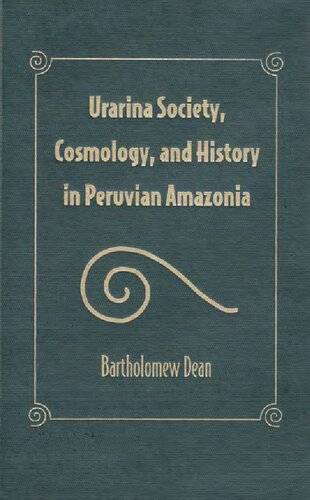

Most ebook files are in PDF format, so you can easily read them using various software such as Foxit Reader or directly on the Google Chrome browser.
Some ebook files are released by publishers in other formats such as .awz, .mobi, .epub, .fb2, etc. You may need to install specific software to read these formats on mobile/PC, such as Calibre.
Please read the tutorial at this link: https://ebookbell.com/faq
We offer FREE conversion to the popular formats you request; however, this may take some time. Therefore, right after payment, please email us, and we will try to provide the service as quickly as possible.
For some exceptional file formats or broken links (if any), please refrain from opening any disputes. Instead, email us first, and we will try to assist within a maximum of 6 hours.
EbookBell Team

0.0
0 reviews"This work transcends the two-dimensional studies of conventional ethnography. Dean provides a comprehensive vision of the Urarina, making and remaking themselves in the complex history and multiethnic society of lowland Peru."--Richard K. Reed, Trinity University
The Urarina are an indigenous group found in the Peruvian lowlands. Seemingly isolated, they actually have a long history of engaging in networks of trade with outside groups, argues Bartholomew Dean in this first ever ethnography of the group.
Dean describes the surroundings and circumstances under which the Urarina live, focusing on such hot-button issues as globalization, inequality, and debt. He challenges the view of "pristine" Amazonian society by revealing the region's long history with agents of international capital. By showing how the Urarina are engaged with global, national, and regional economies, he reveals the ways those interactions shape their day-to-day life.
Based on more than a decade of field research in Peru, Dean's analysis touches on kinship and power, the exchange of goods such as cloth and forest game, land use, and the importance of narcotic trance, myths, and shamanic wizardry. Grounded in observation rather than theory, the book offers a new and more complex form of the traditional anthropological ethnography.